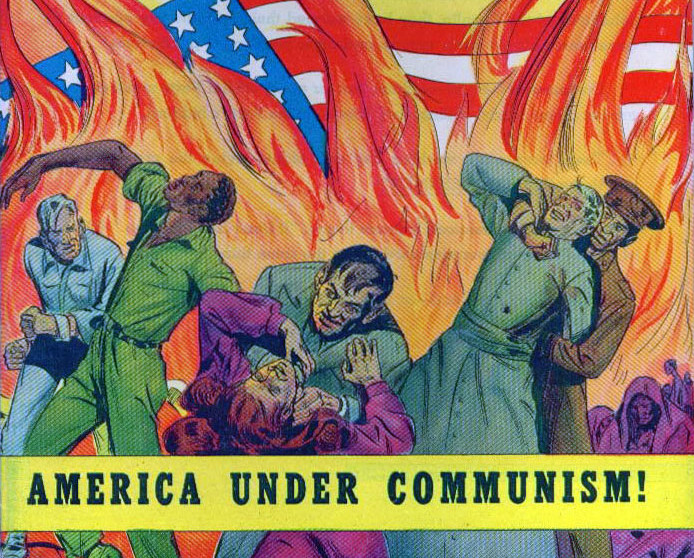
As it pertains to the supposed relationship between Russia and Team Trump, and especially between Russia and President Trump himself, there currently exists two vastly different criticisms coming from the Democratic party.
The first criticism concerns the seeming inability of several high-profile Trump appointees or surrogates to tell the truth regarding their relationship with Russia(ns). It is completely fair to worry about the persistent “alternative facts” Paul Manafort, Jeff Sessions, Mike Flynn, et al. have brought forth, and as such is reasonable to insist on an independent Congressional inquiry into possible collusion between Trump’s campaign team and the Kremlin to undermine Hillary Clinton’s campaign. In fact, testifying to Congress this past Monday (March 21), James Comey, the maligned head of the FBI, admitted that his agency is currently investigating “possible links between donald Trump’s presidential campaign and Russia.” Any coordination with a foreign power to manipulate the presidential election would be both illegal and dangerous, and should be treated as such.
But there is a second, persistent critique of the Trump/Russia relationship, and this one is more questionable. It concerns Trump’s stated desire to improve ties with Russia in order to cooperate on larger strategic issues and to avoid conflict. In this, the Democrats’ attacks are becoming frighteningly reminiscent of Mccarthyism and the infamous red scare. This type of attack coming from the Democratic party is hypocritical and dangerous; hypocritical because the original champion of a friendly “reset” with Russia was none other than Barack Obama himself, a frequent target of neoconservative and liberal interventionist critique for his military restraint towards Russian aggression in both Ukraine and Syria; dangerous because it could lead to a deleterious chilling effect, deterring US officials or the administration from any sort of mutually beneficial cooperation and, worse, may very well may push a sensitive, impulsive and unprepared President to the brink of an escalation with Moscow.
If America’s various misadventures toppling Saddam Hussein and Muhammar Gaddafi has proved anything beyond the fact that history repeats itself, it’s that the constant vilification of a foreign leader and his regime can precipitate military confrontation between the two countries. This type of hysterical demonization creates a “with us or against us” mentality, presents bilateral foreign policy as a zero-sum game and ultimately undermines peace prospects between the two nations.
While it is an exaggeration to say, as some have, that Russia’s electoral interference have set off an inevitable return to the Cold War, it is true that US-Russian relations, and the potential for escalation into conflict, has not been this high since Gorbachev’s peace prize. Consider Sergey Rogov, Moscow’s academic director of the Institute for US and Canadian Studies, who was quoted in the New Yorker as saying, “Not in in a generation has the enmity run this deep.” He continued with an ominous warning: “I spent many years in the trenches of the first Cold War, and I don’t want to die in the trenches of the second.” Rogov remembers the harsh, demonizing rhetoric that slowly grew into full-scale conflict decades ago — his warnings of a return to the same levels of animosity should not go unheeded.
Already we are seeing how aggressive rhetoric can morph into aggressive actions. When reports came out that the Trump campaign worked to alter the language in the GOP platform during the convention, deleting an overt call to provide weapons to the Ukrainians, the predictable criticism from neocons was met with equal derision from the Democratic establishment. In fact, some even saw it as proof that Trump was essentially a Manchurian candidate. Never mind that President Obama had himself resisted calls to arm the Ukrainians with deadly weapons, under a reasonable fear that this would unnecessarily provoke Russians into more bellicose behavior in a region that is far closer to Moscow’s vital interests than to Washington’s. We saw it again in these past two weeks, when Senator Lindsay Graham’s bill, blocking any federal effort to relieve Russia of international sanctions, was met with significant support — with more Democratic Senate sponsors than Republican ones.
Politicians and citizens alike who don’t hunger for the prospect of a nuclear war should recall the infamous story of how the patience, savvy, and independence of a single Russian officer during the Cold War prevented what could have been one of the most disastrous conflicts in mankind, when he deliberately withheld (what he believed to be false) information from his own government so as to prevent an irreversible escalation. While the threat of nuclear war is less acute than it was at that time, the story serves as a reminder that geopolitics can, and will, never be the same in light of the spread of nuclear weapons; one simple miscommunication can lead to the annihilation of an entire country. Belligerent and aggressive rhetoric, and the vilifying of an entire country, only serves to increase the possibility of a potentially fatal miscommunication. It is no mere coincidence that the Doomsday Clock is now three minutes before the hour — the closest it’s been to midnight since the 1980s.
There is every reason to be seriously concerned, and to seriously investigate, ties between Trump and his aides on the one hand, and Russians on the other, in particular any collusion between the two aimed at tilting our elections. And there is every reason for the US to confront Russia diplomatically on serious issues, such as potential war crimes in Syria. But this shouldn’t excuse the dangerous xenophobia that has now plagued political discourse regarding Russia. As Rogov indicates, this type of unabashed zero-sum rhetoric when it comes to US-Russian relations can only last for so long before escalating into conflict.
The Democratic party has an enormous amount of valid complaints and rebuttals, and holds the moral high ground on the vast majority of issues against Donald Trump and his administration. However, the more they obsess with this Russian issue, and go on fishing expeditions, they will not only seem irrelevant if there is no smoking gun, they will also continue to ignore some of the very real damaging policies affecting millions of American lives that the Trump administration has been pushing through. This fixation on Russia isn’t one of them, and doesn’t serve them, the American people, or the prospect for peaceful international relations in general.
The views expressed by the author do not necessarily reflect those of the Glimpse from the Globe staff, editors or governors.







